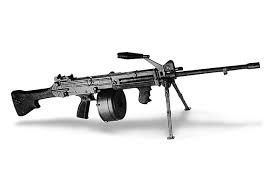
Introduction
The topic of weapons is critically important in our modern world, as it encompasses not only military power but also international relations and public safety. The ongoing developments in weapons technology, from conventional arms to advanced systems such as drones and cyber weapons, have significant implications for national security and global stability. Understanding these trends is essential for policymakers, military strategists, and citizens alike.
Current Trends in Weapons Technology
As of 2023, several key trends characterize the landscape of weapons technology. One of the most notable is the rapid advancement in unmanned systems, particularly drones. According to a report by the Stockholm International Peace Research Institute (SIPRI), the use of combat drones has increased significantly in various conflicts around the world, demonstrating their effectiveness and efficiency.
Additionally, hypersonic weapons have emerged as a top priority for several nations, including the United States, Russia, and China. These weapons can travel at speeds exceeding Mach 5 and are capable of evading current missile defense systems, raising the stakes in military strategy.
International Arms Control Efforts
Amid growing concerns about weapons proliferation, international arms control remains a pressing issue. The Treaty on the Non-Proliferation of Nuclear Weapons (NPT) continues to play a crucial role in preventing the spread of nuclear arms, though its efficacy has been questioned in recent years, especially with countries like North Korea and Iran advancing their nuclear programs.
Furthermore, discussions surrounding emerging military technologies, such as autonomous weapons and artificial intelligence, are gaining prominence. The United Nations has initiated dialogues on the need for regulations regarding autonomous weapons systems to prevent unforeseen consequences in future warfare.
Conclusion
The evolving nature of weapons technology reflects broader trends in global security dynamics. As nations race to innovate and enhance their military capabilities, the importance of international cooperation and responsible governance becomes increasingly clear. Readers should be aware that these advancements can lead to both opportunities for peace and challenges in maintaining stability. Ongoing discussions among world leaders and policymakers regarding arms control and ethical considerations in weapons development will be crucial in shaping the future landscape of military power.



